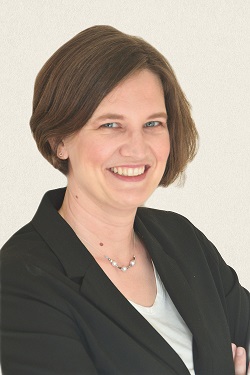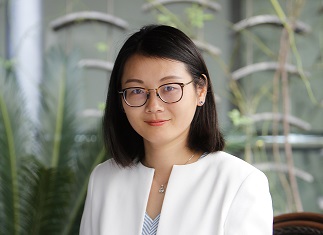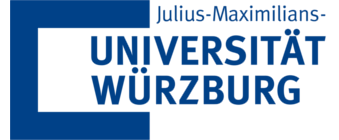 |
- Pauline Vos - University of Agder
-
Pauline Vos is a Professor at the University of Agder, Norway. She has done remarkable work in the area of authenticity of mathematical models and the opening of mathematical models for the public. Her main research takes place in the design of learning pathways that particularly benefit from the use of mathematical models and applications.
- The Public Understanding of Mathematical Modelling (PUMM)
-
In the COVID-19 pandemic, mathematical terminology entered the public debate, such as `flatten the curve’, a decreasing increase, exponential growth, and the reproduction value R of the virus. The terminology reflects the use of epidemiological mathematical models for the pandemic policies. Also, in other areas of the public discourse (climate change, microplastics, poverty, etc.), we encounter mathematical modelling terminology. But what do ‘average citizens’ understand about it? In this keynote, I will present research on the Public Understanding of Mathematical Modelling (PUMM). PUMM develops informally and in context, for example when citizens look up concrete information on government websites. PUMM is ad-hoc, not guided by a curriculum, and propelled by (1) society’s problems, and by (2) an increased use of mathematical models in decision making. Research on PUMM also yields recommendations for mathematical modelling education.
|
|
 |
- Katrin Vorhölter - University of Hamburg
Katrin Vorhölter is a research assistant at the University of Hamburg, Germany. Her main research is on the role of mathematical modelling tasks in the students’ meaning construction and the fostering of metacognition within modelling processes.
The first part of the presentation focuses on the use of metacognitive strategies when working on modeling problems. Questions about the benefits of using these strategies as well as framing conditions for using these strategies during phases of group work are theoretically derived and the existing empirical findings are summarized. In a second step, results obtained by different methods on the use of metacognitive strategies by students when working on modeling problems are presented and related to each other.
- Metacognitive Modelling Strategies
-
The crucial role of metacognition in modeling processes and for developing modelling competencies is not questioned in the international discussion on modeling. However, in contrast to the assumed importance, a relatively small number of studies were conducted focusing metacognition in modeling, their results seemingly contradictory. The reasons for this may be on the one hand that metacognition is a rather complex and vague concept developed in different domains and with different conceptualizations and on the other hand the usage of different methods to measure metacognition. Furthermore, the usage of individual metacognition on and group metacognition must be distinguished.
The first part of the presentation focuses on the use of metacognitive strategies when working on modeling problems. Questions about the benefits of using these strategies as well as framing conditions for using these strategies during phases of group work are theoretically derived and the existing empirical findings are summarized. In a second step, results obtained by different methods on the use of metacognitive strategies by students when working on modeling problems are presented and related to each other.
|
|
 |
- Xiaoli Lu - East China Normal University
Xiaoli Lu is a young researcher at the School of Mathematical Sciences at East China Normal University, China. She was involved in the Autumn School 2018 in Würzburg and I was impressed by her knowledge. She is part of the mathematical research group Binyan Xu implementing modelling problems in many schools in Shanghai. Her research focuses on the analysis of modelling problems and the promotion of modelling competencies.- Promoting modelling as a creativity-demanding activity in China: From the perspective of teacher professional competencies development
-
Due to its openness and process-oriented characteristics, modelling can be a creativity-demanding activity, through which learners could develop both modelling competencies and creativity skills. Teachers play a central role in promoting the learning and teaching of modelling, and effective teacher education programmes and supports for teachers in their initial stage of career are necessary. Thus in this presentation, particular focus has been paid to the development of teacher professional competencies in promoting modelling as a creativity-demanding activity in the learning and teaching of mathematics in China. The presentation comprises of a survey of the state-of-the-art on the researches and practices in teaching modelling, and investigations on the development of pre-service teachers’ professional competencies in teaching modelling in China, with particular focus on creativity aspects. The survey points out the dominance of non-empirical studies on the teaching of modelling in China, and reveals that the necessity of promoting modelling has been widely recognised by Chinese teachers but emphasising a simple transition of traditional teacher-centred instruction. The investigations focus on the measurement of pre-service teachers’ theoretical and pedagogical competencies of teaching modelling with the aim of promoting students’ modelling competencies that integrated with creativity. The investigations were conducted when the pre-service teachers undertaking the learning of teaching modelling at the university, during which they learned to plan and execute the teaching of modelling, worked with secondary school students to assist the students to do modelling, and made reflections actively across the learning process. Based on these, the presentation ends with the discussions on the influences on the development of teacher professional competencies and the relations between teacher competencies and student learning of modelling.
|
|
|

|
- Milton Rosa - Universidade Federal de Ouro Preto (UFOP)
Milton Rosa is an adjunct professor at the Centre for Open and Distance Education at the Federal University of Ouro Preto (CEAD/UFOP), where, besides being the coordinator of the Degree in Pedagogy course, he teaches in the courses of Pedagogy and Mathematics. He has experience in the area of Mathematics, with emphasis in Education, working mainly in the areas of Mathematics, Ethnomathematics, Curriculum and Instruction, Mathematical Modeling, Ethnomodeling, Linguistics and Mathematics, History of Mathematics, Educational Leadership. - Ethnomodelling as the Glocalization of Mathematical Practices through the Connection of Ethnomathematics (Local) and Mathematical Modelling (Global)
-
One of the major dilemmas in mathematics education in contemporary society is its hidden bias towards a westernorientation in its scholarly and research paradigms. While being mindful of emerging glocalization of science,mathematics, religion, art, music, and other aspects of a given culture, the use of innovative or what may seemalternative approaches and methodologies is necessary to record historically diverse forms of mathematicalknowledge that occur in distinct cultural contexts.
With colonization of science and mathematics through history, it seems prudent at this critical stage of humandevelopment in which people become mindful of many rich and diverse traditions in relation to mathematics. Thus, it is important to apply an ethnomathematical in connections with modelling perspectives as we develop mathematics curriculum.
In this context, there is a necessity towards developing an understanding of the role of ethnomathematics andmodelling processes in the development of an innovative theoretical basis for ethnomodelling, which applies emic (local), etic (global), and dialogic (glocal, cultural dynamism) approaches in its investigative process.
In this regard, ethnomodelling is a pedagogical action for the process of teaching and learning mathematics thatchallenges the prevailing way of the universality of mathematics and the thinking involved therein.
Hence, ethnomodelling aims to work against colonialism in order to value and respect the wide sociocultural diversity found in the mathematics and scientific traditions of the members of distinct cultural groups by creating a firm foundation that allows for the integration of these three approaches in exploring mathematical knowledge developed by the members of these groups.
Generally, ethnomodelling adds the cultural aspects of distinct communities to the modelling process.
|
|









